Bachelor of Science
Education
Educators with a degree earn an average of 119% more than those without

Starts
Anytime

100%
Self-paced
Love teaching?
A bachelor’s degree empowers you to earn $50,000 or more
Choose a concentration that fits your goals

Early Childhood
Qualify for a career in UPK, Headstart or other early childhood government programs

Special Education
Support children with different learning needs in and out of school environments
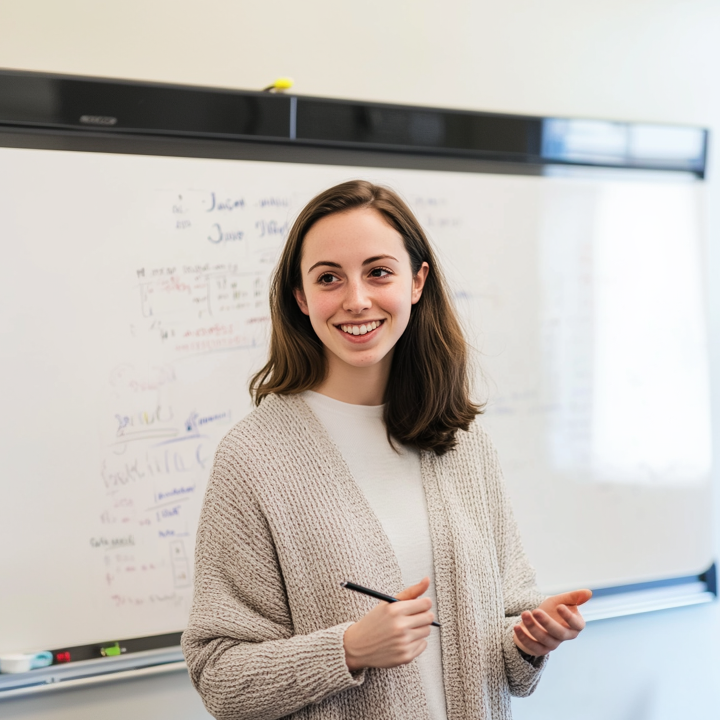
Jewish Education
Stand out as a Jewish educator with exceptional skills & classroom management
We also offer an MA in Education or Special Education.
Take up to 2 master’s courses while still in the undergrad program and finish your MA faster.
Not sure yet which concentration is right for you?
Start now, choose a concentration later
Compare your earning potential as an educator
Without a BS in Education

Teaching Assistant
median annual salary*
$29,360

Preschool Teacher
median annual salary*
$30,210

Classroom Teacher
median annual salary*
$30,000 – $50,000
With a BS in Education

Preschool Teacher
median annual salary*
$35,330

Classroom Teacher
median annual salary*
$65,291

Early Intervention Teacher
median annual salary*
$64,514
*Potential annual salary based on our research findings as of 2024. Annual salaries vary greatly based on role, responsibilities, and employee experience. Woodmont College does not, in any form, guarantee job or salary outcomes.
Government-funded programs pay teachers better
and require a bachelor's degree in Education at minimum
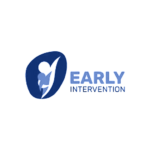
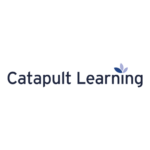


Jumpstart your kid-centered career
Begin with a BS in Education, then pursue a related master's degree
Special Education
MA in Special Education
MA in Teaching in Special Education
And many more options
Social Work
Master of Social Work (MSW)
Business
Master of Business Administration (MBA)
Education
Master of Arts in Teaching (MAT)
Master of Education (MEd)
And many more options
Pschology
Master of Mental Health Counseling
Master in Educational Psychology
Nutrition
ABA
Speech Therapy
3 signs this program is for you

You're a people-person preparing for a career
Is this you?
You connect well with others and have a lot to give. You can envision a career in which you empower and inspire children — while taking home enough pay to actually support your own family. While you are primarily driven as a giver, you also want to make sure you have much bigger earning potential when you need it — as an educator, therapist, or any other caring career. A program that lets you earn a degree you can take in multiple directions is perfect for you.

You're an educator hitting a salary ceiling
Is this you?
You’re a classroom assistant, para, or substitute teacher, but you know you’re ready to move up into classroom leadership. The only thing holding you back is the lack of letters after your name. You want a fast, flexible way to earn your degree while you work. You also want to learn relevant skills that will propel you into a new role with confidence. A program that focuses on real-life teaching strategies with flexible timing and a straightforward trajectory is perfect for you.

You're a job-seeker hitting a brick wall
Is this you?
You’re a talented teacher with a load of passion and skill. But you’re hitting a brick wall when it comes to finding your dream job. All the jobs starting at $70k+/year or $80+/hour seem to be reserved for credentialed teachers — and you want access to those opportunities. You don’t have the time or headspace to sit in a classroom. You want to earn a degree in a way that works for your already-full lifestyle. A program that gives you all the tools you need to succeed, with lots of support and flexibility is perfect.

Want a seamless leap from BS degree to MA degree?
Begin with a BS in Education, then pursue your MA in Education, STEM concentration right here.
THE DIRECT ADVANTAGE™️
An easier way to earn your degree
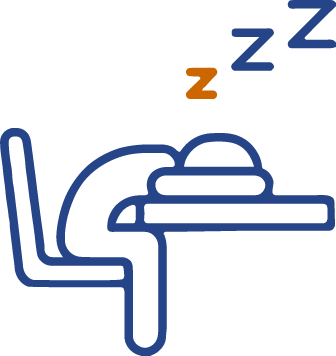
Traditional approach
Courses last 8-15 weeks, with progress based on a preset timeline. There’s no such thing as taking breaks without failing the course.

Direct Advantage™️
You can start whenever you are ready and complete courses at your own pace. Set and meet your own timeline goals. Take breaks when life calls for it.

Traditional approach
Immutable grades are assigned based on student performance. Only a select few achieve top final scores.

Direct Advantage™️
Students are coached until they reach mastery. Every student can achieve a top final score at their own pace.

Traditional approach
Professors answer questions, conduct tests and assessments, and deliver final course grades.

Direct Advantage™️
Professors coach students and propel student progress from “development” to “mastery” — with a 48-hour grading turnaround, the fastest in the country.

Traditional approach
Students receive a college degree once they pass all required coursework.

Direct Advantage™️
Students receive a college degree at their own pace. In some courses, they can earn digital badges for transferable skills like Problem Solving, Critical Thinking, and Leadership.

Traditional approach
Text-based and rote. Students are asked to memorize and demonstrate mastery of content or information.

Direct Advantage™️
Skills-based and inspiring active engagement. Students are asked to demonstrate mastery of skills through open-ended assignments.
What you'll learn
One core program

Foundations of Education

Classroom Management
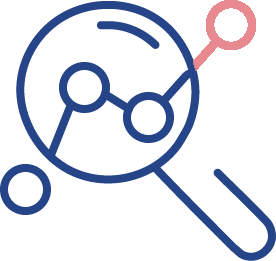
Assessment & Evaluation
3 concentrations to choose from

Special Education

Early Childhood Education

Jewish Education
BRING IT WITH YOU TO WORK
Get a Skill Advantage you'll take with you everywhere
Learn from the best
Unlike traditional college professors, our courses are led by academic facilitators who are here to help you succeed.
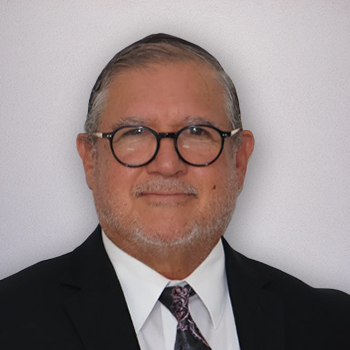
Dr. Michael Hamlin
PhD
Dr. Michael Hamlin
Dr. Hamlin received his doctorate in Educational Psychology from the University of Washington and has worked and taught psychology and education classes to hundreds of students at several top universities including the University of Washington, Drexel University, Thomas Jefferson University, Pepperdine University, Loyola Marymount University and Touro University as well as the Microsoft Corporation. Starting with his graduate school research which focused on the integration of the learning sciences and educational technology, he has gone on to direct professional education and training programs both in traditional settings and in virtual environments for medicine, dentistry, business and allied health.
Dr. Hamlin has written and presented numerous papers in instructional technology and his research projects have received $1,000,000 in sponsored support. These funded projects include an Internet Collaboratory to support the application of research to health care practices and a follow-up project to create an evidence-based health care institute as well as projects focused in cognitive instruction,
information ethics and apprenticeship training.
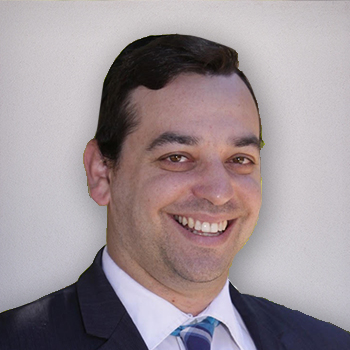
Rabbi Dr. Avichai Pepper
PhD
Rabbi Dr. Avichai Pepper
Rabbi Dr. Avichai Pepper is a graduate of the New England Rabbinical College in Providence, RI. He holds a Master’s degree in Educational Leadership from Bellevue University, a Master’s degree in Counseling from Liberty University, and a Doctorate in Educational Leadership from Liberty University. Rabbi Dr. Pepper brings experience for more than 25 years of work in the field of education. He has held several positions in formal and informal education and school administration. He currently serves as the Director of Educational Support Services at the Yeshiva of Greater Washington, in addition to serving as an Academic Facilitator at Woodmont College.
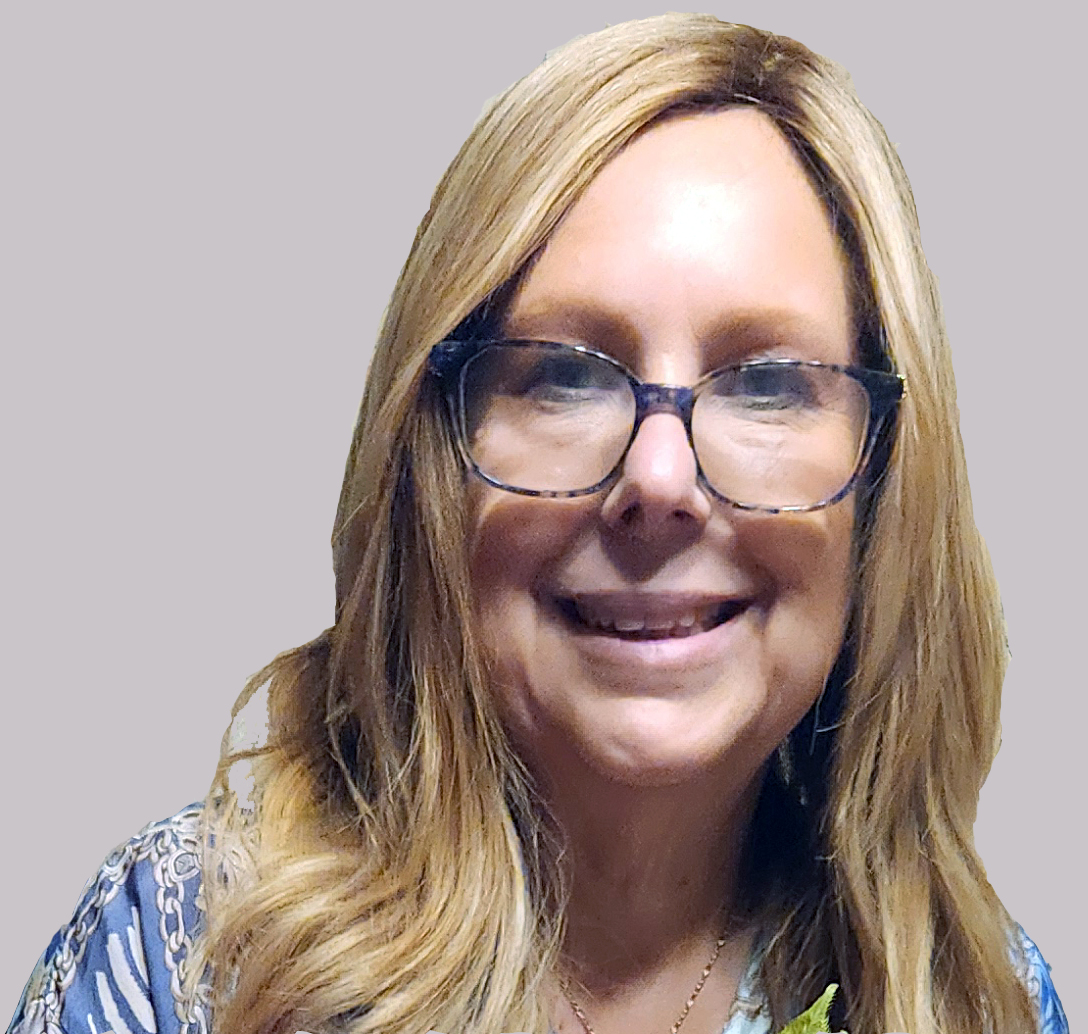
Professor Jodi Brenner
MA
Mrs. Jodi Brenner
Jodi Brenner joined the Education Department at Woodmont College in Spring of 2024. She graduated from Brooklyn College with her MS in special education and a concentration Early Childhood. Her Pre K-12 teaching experience was as a special education Itinerant teacher and Early Interventionist for both integrated co-teaching and self-contained settings as well as working with the NYS Early Intervention Program. Jodi teaches college graduate courses related to instructional methods in early childhood fields, special education inclusion and collaboration. Her primary research areas are in course design, teacher/faculty preparation, instructional methods, and professional development for ICT classrooms and instruction for students with high-incidence disabilities.
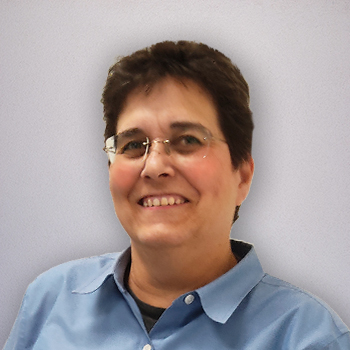
Dr. Stephanie Glick
PhD
Dr. Stephanie Glick
Dr. Stephanie Glick, Head of Educational Technology at Braude College of Engineering, brings over 30 years of experience. She earned her MA in Education at Brandeis University and her EdD in Educational Technology at Pepperdine University. With a doctorate in educational technology and media, she collaborates with faculty, focusing on instructional design and exploring emerging technologies. Passionate about pedagogical excellence, she develops online courses to meet diverse learner needs. Driven by a genuine curiosity about the intersection of technology and pedagogy, Stephanie finds great joy in exploring and experimenting with emerging technologies. Her goal is to support educators in their pursuit of pedagogical excellence by leveraging these tools thoughtfully.

Professor Amy Nelson
MS Ed
Professor Amy Nelson
Amy Nelson, MS Ed, has enjoyed a career working with young children, their parents and their teachers, spanning more than three decades. She is a Brandeis University graduate with a law degree from Boston University School of Law and an MS Ed in Early Childhood Education from Bank Street College of Education in New York City. Amy’s Jewish early childhood education background includes ten years as Director of the Nursery School at Temple Beth El in Closter, NJ. She also served as Early Childhood Director at the Bergen County YJCC and the JCC MetroWest, both in New Jersey and the Mandel JCC in Boynton Beach, Florida. Amy’s engagement with Jewish life includes serving as President of Orangetown Jewish Center, as well as participating as a member of the METNY United Synagogue Youth Committee and the Education Committee of the Reuben Gittleman Hebrew Day School.
Currently, Amy resides in Israel where she enjoys a new role as Savta to her two beautiful granddaughters, Yarden and Arava. When she is not spending time with her grandchildren, Amy divides her time between teaching English to young Israeli natives, enjoying the Tel Aviv beaches, and traveling.
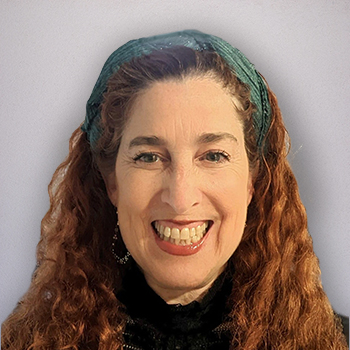
Professor Shari Seidman-Klein
Professor Shari Seidman-Klein
Mrs. Shari Klein, a devoted wife and mother, has spent the past 25 years working in all
facets of the field of early childhood education: Teacher at Yeshivah of Flatbush and
Torah Tots; Evaluator and Interventionist at Challenge, Early Intervention Agency and
SEA, CPSE Agency; Education Director and ultimately as the HR Director at
BumbleBeesRus, where she is in charge of hiring, supporting, and training over 120 full-
time early childhood educators. Mrs. Klein earned her Master’s in early childhood birth-
2nd , 1st-6th and in children with disabilities from Touro College, in addition to her
Permanent Reading Teacher License from Long Island University. Since making aliyah
10 years ago, Mrs. Klein has been an active member of her community in Beit Shemesh
creating family programming. For the past 3 years, she and her family have also
undertaken the very rewarding responsibility of running a monthly food drive for a local
food pantry. During her free time, Mrs. Klein volunteers at ADI Negev-Nahalat Eran,
working with the development team and alongside the staff in the special education
center.
Program overview
Program Description
The Woodmont BS in Education prepares graduates with the skills and knowledge needed to design, implement, and evaluate educational experiences for child learners. The Bachelor of Science in Education major includes a focus on Early Childhood Development.
Students are required to take 45 credits of general studies composed of 30 credits of required general studies courses and 15 credits of elective general studies courses.
All students are required to take 15 credits from the Education Program Core courses.
Students then take the courses Early Childhood Education Elective Credits category.
Program Outcomes
Education Learning Outcomes
1. Design quality instruction aligned with state-approved standards and derived from deep, evidence-based pedagogical and content knowledge of human development and learning theory
2. Create safe, equitable and inclusive learning environments that are student-centered, collaborational, and responsive to a multicultural and diverse student population.
3. Demonstrate the ability to use high-level learning strategies, communication skills and inclusiveness in a well-managed learning environment
4. Demonstrate the ability to analyze philosophical, theoretical and legal trends and evaluate their impact on educational policies
5. Apply Socratic pedagogical methods that set well-defined and high expectations for learning and promote the development of student metacognitive skills and a positive attitude for learning
6. Evaluate available technology options and integrate appropriate educational and informational technologies into lesson planning
7. Demonstrate the ability to select appropriate measurement tools for use in formative and summative assessment measures for student learning progress
8. Create, monitor and evaluate a personal continuous development plan based on data from both student performance and teaching effectiveness
9. Identify common elements and purposes of schools and relate them to student success outcomes
10. Evaluate and describe the impact of societal trends on school policies and curriculum
Required General Education - 45 credits
Department
Course
Credits
Foundations
3
Communication and Expression
English writing
Language, Literature, Art, Music or Design
3
3
Quantitative, Digital, and Scientific Literacy
Math
Science
Technology
3
3
3
Social Awareness and Responsibility
Ethics
Other Social Science (psychology, history, economics, education, or political science)
3
3
Reason and Religion
Philosophy
Religion or Philosophy
3
9
General Education electives
9
Required Major Courses - 33 credits
Course Code
Course Title
Credits
Prerequisite
EDU101X
Introduction to the Profession of Teaching
3
Core Education Courses
EDU102X
Applied Learning Theory
3
EDU201X
Schools: Their Structure and Purpose
3
EDU202X
Educational Psychology
3
PSYC 201X
Developmental Psychology
3
Total Program Core:
15
Early Childhood Education Electives
EDU230X
Introduction to Early Childhood Education
3
EDU301X
Learning & Development in Early Childhood
3
EDU302X
Curriculum Development for Early Childhood
3
EDU310X
Positive Child Guidance in Early Childhood
3
EDU401X
Language and Literacy Development in Early Childhood
3
EDU402X
Early Intervention for Young Children with Special Needs and their Families
3
Total in Early Childhood Education Electives
21
Elective Credits – 42 credits

Get fast information
we’ll reach out to help ASAP


